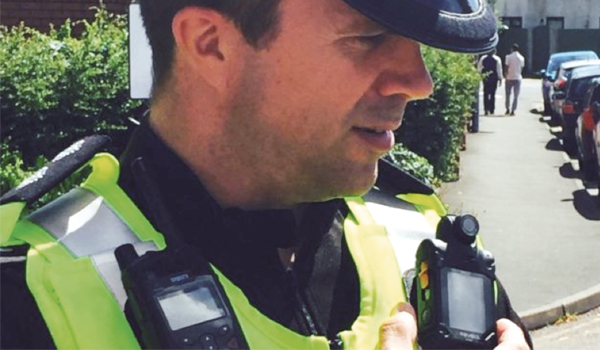BWV changing face of policing
The introduction of body-worn video (BWV) cameras has changed the face of policing says Staffordshires police and crime commissioner Matthew Ellis.
The introduction of body-worn video (BWV) cameras has changed the face of policing says Staffordshires police and crime commissioner Matthew Ellis.
Staffordshire Police was the first UK force to equip all frontline officers with BWV cameras, which are now being issued to firearms officers.
The impact of BWV across Staffordshire has been dramatic. It has changed the face of policing with footage being examined by people across Staffordshire to make sure officers are following procedures, said Mr Ellis.
He said footage from stop and searches has helped identify extra training for officers, adding: It provides an extra level of independent scrutiny to make sure police follow policies and stop and searches are fair and effective.
There are 550 BWV cameras supplied by Reveal Media now in use by Staffordshire police officers and Mr Ellis says they are key to building public confidence in policing.
A year-long study of almost 2,000 officers across UK and US forces by the University of Cambridge found the introduction of BWV cameras led to a 93 per cent drop in complaints made against police by the public.
Researchers say this may be down to wearable cameras modifying behaviour through an observer effect the awareness that encounters are recorded improves both suspect demeanour and police procedural compliance.
The use of body cams ensures police officers behave appropriately in their duties interacting with individuals as well as speeding up the investigation, which at times can be complex complaints against officers, said Mr Ellis.
Body cams reinforce openness and transparency in policing, which I believe is so important.
Officers in Staffordshire are required to record each stop and search and the footage can then be examined by safer neighbourhood panels across the county.
Latest figures show the number of stop and searches in Staffordshire by police has dropped year on year with a larger proportion resulting in an arrest or a caution than previously recorded which Mr Ellis believes means police are using their powers more effectively.
Of the 3,585 stop and searches carried out in Staffordshire between October 1, 2015 and September 30, 2016, 882 (24.6 per cent) had a police outcome which includes arrests and cautions. This is down from 5,084 for the period between October 1, 2014 and September 30, 2015, of which 1,057 (20.8 per cent) had a police outcome.




